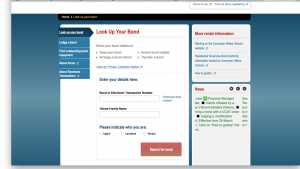Moving is hard. In fact, it’s consistently ranked as one of life’s most stressful events akin to getting a divorce or losing a loved one.
It’s not just the logistics of packing and unpacking; it’s the emotional weight of leaving behind the familiar, the anxiety of starting over, and the uncertainty of what lies ahead. Then there’s the grief of saying goodbye to friends and loved ones plus the stress of a new job, new environment, new everything.
The good news is with the right strategies and support, it’s possible to make the transition smoother and protect your employees’ mental health throughout the process. Below are our top tips.
How to Protect Employees’ Mental Health During a Move
1. Discuss work-life balance expectations in advance

Before the relocation process even begins, initiate a conversation about work-life balance expectations with your relocating employees. Everyone has unique boundaries between their professional and personal lives, and these can vary significantly across cultures.
For instance, in some countries, it’s perfectly acceptable to text or call employees outside of office hours or on weekends. However, in Australia, the cultural norm tends to lean towards a stricter separation of work and personal time. Employees generally value their time off and may not appreciate work-related communication during their non-working hours.
Given that you and your international assignee will be operating in different environments, which culture should you follow? Discuss how you will deal with these differences.
2. Address their challenges

Relocation often brings a host of challenges that can significantly impact an employee’s mental well-being. Be proactive in identifying and addressing these issues to mitigate their stress and ensure a smoother transition.
In our experience, the common challenges are:
- Moving away from elderly parents, which can be emotionally taxing. We recommend offering resources for remote caregiving, assistance with travel arrangements for visits, or even explore options for relocating parents closer to the employee.
- Relocating with a child with special needs, which means it requires additional planning and support. Help families find suitable healthcare providers, schools, and support groups in the new location.
- Looking for a job for the partner. We suggest facilitating the spouse’s job search by providing career counselling, networking opportunities, or assistance with visa applications if applicable.
- Finding the right school for children, which is not physically tiring but also time-consuming. Research and recommend schools that cater to the children’s specific needs and interests. Consider factors like academic programs, special education services, language support, and extracurricular activities.
3. Listen, adapt and be flexible

To truly support your employees’ mental health during a move, listen to their concerns and consider shifting from a strict relocation policy to a more adaptable relocation framework.
For instance, your employee might not require language lessons but could greatly benefit from an hour with a career coach to understand the local job market. Others might prefer assistance for their spouse’s job search over traditional relocation benefits.
Perhaps, a spouse in a predominantly dual-income family may struggle to find work in the new location. Explore alternative solutions, such as offering financial assistance for job training, networking opportunities, or even remote work arrangements.
Remember, requests for specific arrangements aren’t signs of entitlement or “bratty” behaviour. They often stem from genuine needs and anxieties related to the move.
4. Create mental health policies

Most organisations today have established mental health policies and processes. Review your existing policies and identify how you can adapt and apply them to the specific needs of your new arrivals. Keep in mind that their priorities may differ significantly from yours, especially during the initial weeks. While you are focused on ensuring productivity from the get-go, your international assignee is more concerned about settling their family first.
Consider offering:
- Counselling services either in-person or through virtual platforms, to help employees cope with the emotional challenges of relocation
- Employee Assistance Programs (EAPs), including counselling, financial advice, and legal support, which can be invaluable during a stressful transition
- Mental health training for managers and team members on how to recognise signs of stress and anxiety in their colleagues and how to offer appropriate support
At Personnel Relocations, we proactively book a migrant resiliency coaching for all our new arrivals because we understand how crucial this session is for their mental health.
5. Have peer-to-peer programs

Pairing your relocating employee with a buddy or mentor who shares similar interests can significantly ease their transition.
When identifying potential buddies, consider shared backgrounds, interests, or experiences. This could include:
- Nationality: Connect employees who come from the same country or region.
- Alma Mater: Pair colleagues who attended the same university or school.
- Hobbies: Match individuals who enjoy similar activities, such as sports, music, or art.
If your relocating employee is an avid golfer, pair them with a colleague who shares this passion.
Also, if possible, ensure that the buddy isn’t just someone with similar interests but also someone who can provide guidance and support. Have a conversation with the buddy beforehand, encouraging them to think proactively about how they can assist the new arrival. This could be through sharing local insights, offering a listening ear, or simply extending a warm welcome.
6. Host cultural events

Cultural events can promote understanding and appreciation among colleagues from diverse backgrounds. These events provide a platform for employees to share their cultural heritage, traditions, and perspectives in a welcoming and inclusive environment.
These events can also be the time where you can discuss certain Australian workplace etiquette and culture such as the Tall Poppy Syndrome. It refers to the cultural phenomenon where high achievers may face criticism or resentment, particularly if they love rubbing it in people’s faces.
7. Have an onboarding program

A well-structured onboarding program, beyond the standard office introductions, can significantly ease the transition for relocating employees and their families. There are so many opportunities for migrant support here in Australia that people don’t know about. You can try:
- Free Career Counselling for their spouse perhaps
- Organisations such as Families in Global Transition (FIGT) that host events with other new arrivals who can relate to what your employee and their family is going through
- MeetUp events
- Family day out passes at the zoo or museum and include picnic hampers
8. Manage their expectations

Relocating to a new country inevitably involves adjusting to a different way of life, both professionally and personally.
Building a professional and social network in Australia, for example, may be different from their home country. One of the biggest myths surrounding relocation to Australia involves underestimating the challenges of integration and settling in. There is a belief that all Australians are welcoming with big smiles. While this is true when you meet for the first time, it does not mean that they want to become your new bestie.
They already have a circle of friends, unlike the new arrival who has just moved and is seeking a new social network.
For dual-income families, address the possibility that one spouse may experience temporary unemployment while seeking new opportunities.
9. Engage a caring relocation service provider

Partnering with a relocation service provider who genuinely cares about the well-being of your employees can make a world of difference. They can be a trusted advisor and advocate for your employees to help them navigate the complexities of international relocation. A truly caring one will also ensure a smoother, less stressful experience for your employees.
How Personnel Relocations can help
We offer a comprehensive range of services designed to take the stress out of moving and ensure a smooth transition for your employees.
Consultation
We offer a one-hour consultation service where our relocation specialists can answer your employee’s questions about the rental market, school options, navigating different suburbs, and more. This personalised session allows them to make informed decisions about their move.
Migrant Mindset Coaching
Our certified coaches provide relocating employees with tools and strategies to build resilience and adapt to a new cultural environment. This is a FREE offer as part of all our comprehensive relocation packages.
Securing a Rental
Our team helps secure a rental property that meets your employee’s needs before they arrive. This means no stressful house hunting upon arrival, allowing your employee to focus on work and integrate into the new community from day one. No more hours spent scrolling through real estate listings – they can hit the ground running, engaged and focused on their new role.








One Response
It’s true that moving can take a serious toll on mental health. It’s great to see practical tips for easing this transition. For some, employment related assessment and counselling NDIS can provide valuable support, especially when adjusting to new work environments. Check out https://personnelgroup.com.au/employment/ndis-employment-support/